
Haydee Campbell (died October 25, 1921) was an American educator, an advocate for kindergarten for African-American children. (Her first name is also spelled Haidee in some sources.)

Haydee Campbell (died October 25, 1921) was an American educator, an advocate for kindergarten for African-American children. (Her first name is also spelled Haidee in some sources.)
Haydee E. Benchley was born in Texas. She attended Oberlin College. [1] She was the first black teacher to study with Susan Blow at the St. Louis Kindergarten Training School. [2]
Campbell taught kindergarten in St. Louis, Missouri. [3] In 1882, Haydee Campbell was hired to supervise kindergarten programs for African-American children in the public schools of St. Louis. Beginning in 1896, she chaired the Kindergarten Department of the National Association of Colored Women's Clubs. [4] In 1899, she addressed the NACW national convention in Chicago on the topic "Why the National Association of Colored Women Should Devise Means for Establishing Kindergartens". [5] An attendee reported, "Her enunciation was exquisite...her words were well chosen and her subject well handled." [6] In 1903, she managed the kindergarten programming at the Tuskegee Institute Summer School for Teachers. [7]
During World War I she was active with provisions for black soldiers in the War Camp Community Service at Manhattan, Kansas, [8] until ill health took her from that work. [9]
Haydee Benchley married J. Wesley Campbell; they had one daughter. Haydee Campbell died a widow in 1921, in St. Louis. [10]

Kate Douglas Wiggin was an American educator, author and composer. She wrote children's stories, most notably the classic children's novel Rebecca of Sunnybrook Farm, and composed collections of children's songs. She started the first free kindergarten in San Francisco in 1878. With her sister Nora during the 1880s, she also established a training school for kindergarten teachers. Wiggin devoted her adult life to the welfare of children in an era when children were commonly thought of as cheap labor.

Susan Elizabeth Blow was an American educator who opened the first successful public kindergarten in the United States. She was known as the "Mother of the Kindergarten."

Lucy Wheelock was an American early childhood education pioneer within the American kindergarten movement. She began her career by teaching the kindergarten program at Chauncy-Hall School (1879–89). Wheelock was the founder and head of Wheelock Kindergarten Training School, which later became Wheelock College in Boston, Massachusetts, and is now the namesake of Boston University's college of education BU Wheelock. She wrote, lectured, and translated on subjects related to education.

Edna Dean Baker (1883–1956) was an educator, author, co-founder of Baker Demonstration School, and President of the National Kindergarten and Elementary College from 1920 to 1949. She was an early advocate for kindergarten style early childhood education in the United States.

Elizabeth Harrison was an American educator from Kentucky. She was the founder and first president of what is today National Louis University in Chicago, Illinois. Harrison was a pioneer in creating professional standards for early childhood teachers and in promoting early childhood education.
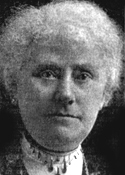
Minnie Dessau Louis was an American educator, writer, and community leader, one of the founders of the National Council of Jewish Women.

Anna Evans Murray (1857–1955) was an American civic leader, educator, and early advocate of free kindergarten and the training of kindergarten teachers. In 1898 she successfully lobbied Congress for the first federal funds for kindergarten classes, and introduced kindergarten to the Washington, D.C. public school system.
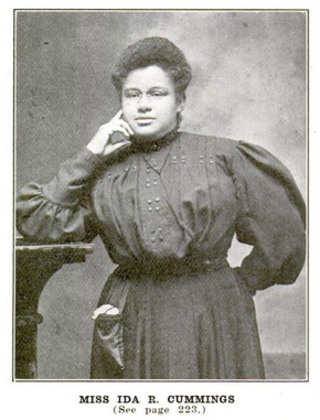
Ida R. Cummings was an American teacher and clubwoman, based in Baltimore, Maryland. She was an officer of the National Association of Colored Women's Clubs in the 1910s.

Victoria Clay Haley, later Victoria Clay Roland, was an American suffragist, clubwoman, bank executive, and fundraiser based in St. Louis, Missouri and later in Chicago.
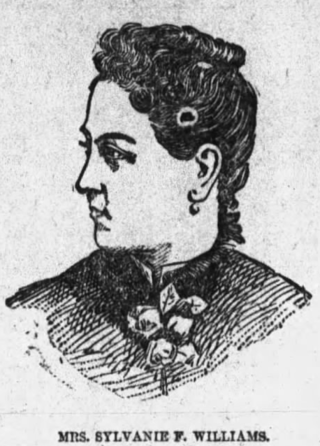
Sylvanie Francoz Williams was an American educator and clubwoman based in New Orleans, Louisiana, USA.
Sara Iredell Fleetwood (1849–1908) was an American clubwoman and teacher. She was involved in the movement of black women into professional nursing, graduating as one of the first nurses from Howard University's Freedman's Hospital School of Nursing. She became the nursing superintendent at Freedman's, organized the Freedmen's Nursing Association and served as the first African American woman on the nurse's examining board of the District of Columbia.
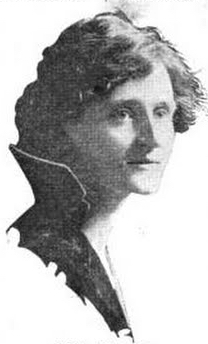
Agnes Low Rogers was a Scottish educator and educational psychologist.

Hallie Elvera Queen, later Hallie Queen Jackson, was an American writer, journalist, and educator. She taught English in Puerto Rico, and was on the faculty of Dunbar High School in Washington, D.C.

Mary Raphael Schenck Woolman was an American educator known for her advocacy of vocational education and consumer education, particularly for women. She was one of the first woman faculty members at Teachers College in New York City. She was the founder of Manhattan Trade School for Girls, the first vocational school for women in the United States. She was the author of several books and lectured around the country.
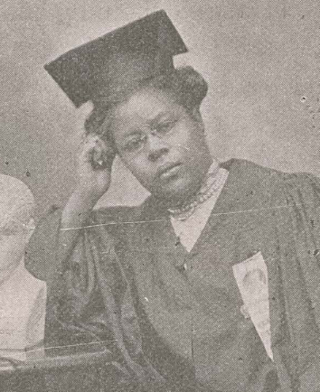
Adena Clothilda Eugenie Minott was a Jamaican-born American educator and consultant. She was the only Black woman to be a fellow of the American Institute of Phrenology.

Flora Alzora Brewster was an American physician, surgeon, journalist, medical editor, and inventor. She is remembered as Baltimore, Maryland's first woman surgeon.
Lillian Anderson Turner Alexander (1876–1957) was an educator, social worker, civil rights activist, and club woman active in St. Paul, Minnesota, and New York City. Before 1918, she was known as Lillian A. Turner with her first husband's surname. After 1918, she used her second husband's surname and was known as Lillian A. Alexander.

Fanniebelle Curtis, born Fannie Isabella Curtis, was an American educator. She was kindergarten director of New York City, and head of the Kindergarten Unit of the American Red Cross during World War I.

Ilien J. Tang was a Chinese educator. She started and supervised kindergartens in and near Nanchang, and was vice-principal at the Baldwin Memorial School for Girls.

Alice Coe Mendham Powell was an American progressive educator, college professor, and school founder. She advocated for federal early childhood education programs, and for universal kindergarten.